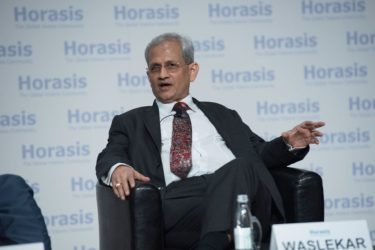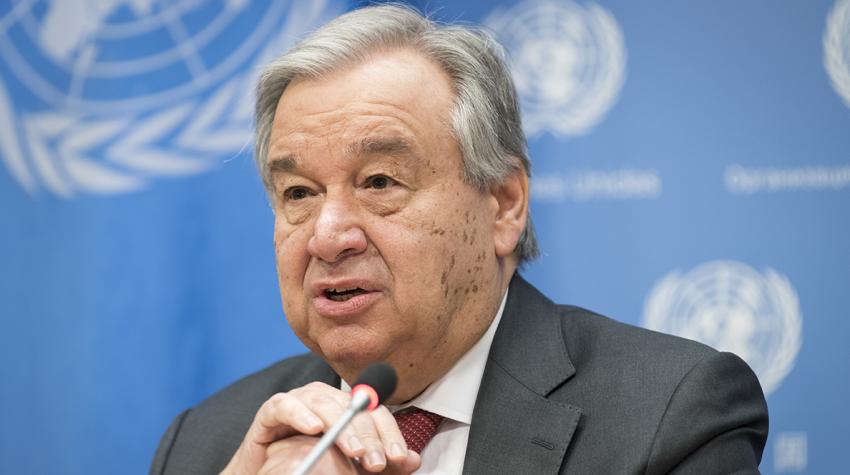The United Nations Secretary-General Antonio Guterres said Friday that escalating tensions between the world’s nuclear powers have emphasized the need for immediate steps towards non-proliferation.
“For the sake of all of our security, the world must return to a common path towards nuclear disarmament”, Guterres said at a UN briefing. He pointed to deteriorating relations between the United States and China, as well as those between the US and Russia, as being cause for heightened concern.
Guterres recommended that the US and Russia, the two countries with the largest stockpiles of nuclear weaponry in the world, quickly work to extend the new Strategic Arms Reduction Treaty (START) that expires in February.
“Especially in today’s tense international security environment, with rising friction between major powers, such steps are more necessary than ever,” he added.
The Secretary General’s comments, which came during a meeting to commemorate the International Day for Total Elimination of Nuclear Weapons, serve to illustrate the global threat that nuclear weapons tech presents.
The weaponization of robots, genomics and artificial intelligence in recent years has been a defining mark of the post-Cold War era where military spending has skyrocketed. On top of the estimated 13,500 nuclear warheads in the world, experts worry of increasingly technological means of warfare. AI-enabled autonomous weapons systems (AWS) are at the forefront of that collective anxiety.
As humans continue to separate themselves from the control processes like targeting and launching, the moral buffers preventing nuclear warfare erode further away. AWS are capable of responding to attacks and making their own maneuvers in an instant, completely removing any time for rational, human thought or strategic planning.
“We are now just at the stage where the decision-making for killing people and hitting targets will be passed on from human beings to machines,” Sundeep Waslekar, the president of the international think tank Strategic Foresight Group, told France24 news channel last year. “This is perhaps the most dangerous time in the history of the human species.”

Sundeep Waslekar. Image Credit: Horasis
Global spending on AWS tools, like AI-driven missiles and drones, is estimated to reach $16 billion by 2025. That troubling trend has Waslekar’s organization working with global leaders to try to stop the spread of nuclear weaponry. Waslekar joined several Nobel Laureates last year to co-sign The Normandy Manifesto for World Peace, which suggested governments follow a phased elimination of nuclear weapons. It also called for the UN Security Council to transform “into a robust instrument of conflict prevention and conflict resolution.”
“With major powers preparing to deploy killer robots, we are on the edge of a black hole; the possibility of machines determining our fate is morally repugnant,” the manifesto states.
At Friday’s UN briefing, world leaders were critical of the US and its continued development of nuclear weaponry. Iran’s Foreign Minister Mohammad Javad Zarif criticized the western power for pulling out of the 2015 nuclear deal involving the two countries and other world powers.
And after abruptly pulling out of the Iran nuclear deal in 2018, the administration of President Donald Trump also seems unwilling to extend a new version of START with Russia.
Presidential candidate Joe Biden – who is leading Trump in the polls headed into next month’s election – has said he would sign the extension if elected and use the treaty as a “foundation for new arms control arrangements.”
No matter who wins the November election in the US, progress can only start with a roll back of nuclear weapons, the delegates said at Friday’s meeting.
Indonesia’s Foreign Minister Retno Marsudi said at the UN briefing that the international community needs to come together to find an urgent solution.
“Maintaining nuclear weapons is clearly a zero-sum situation, while total abolishment of such weapons will ensure that humanity prevails,” Marsudi said.
Disclosure: This article mentions a client of an Espacio portfolio company.












